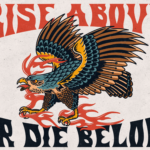FIPPA and attribution at a glance
This week we dove into the protection privacy act in Canada as well as how to properly accredit people for their work, should we choose to incorporate their resources in our future teaching.
FIPPA will make a clear impact in our professional teaching practice as it is meant to regulate where Canadian data is stored. For education, it would go against the FIPPA to store private student information outside of Canada. For some, this might not sound like it would affect them; however, Google has some of its main servers in the US. This means that, if a teacher stored personal student information on the Google cloud, they would be in violation of FIPPA. This privacy act has been broken a plethora of times and will likely continue to be broken. But, there is still hope…
There are several other options on which to store student information inside of Canada: Microsoft, Sync, and more. Another option, if someone wished to use the Google cloud system, would be to use pseudonyms for students, or inform students what information they are permitted to store on the could (Google Drive, for example).
Later in the class we were introduced to some ideas about copyright and proper attribution. We discussed and learned how to legally use content from other teachers (AKA “content creators”) in our future classrooms. This also had great personal usages for outside the classroom. Teachers Pay Teachers, Creative Commons, and Openverse are some of the Open Education Resources (OER) we were shown in class.

Photo by Andrew Neel on Unsplash
Thank you for taking the time to read my weekly class reflection!




